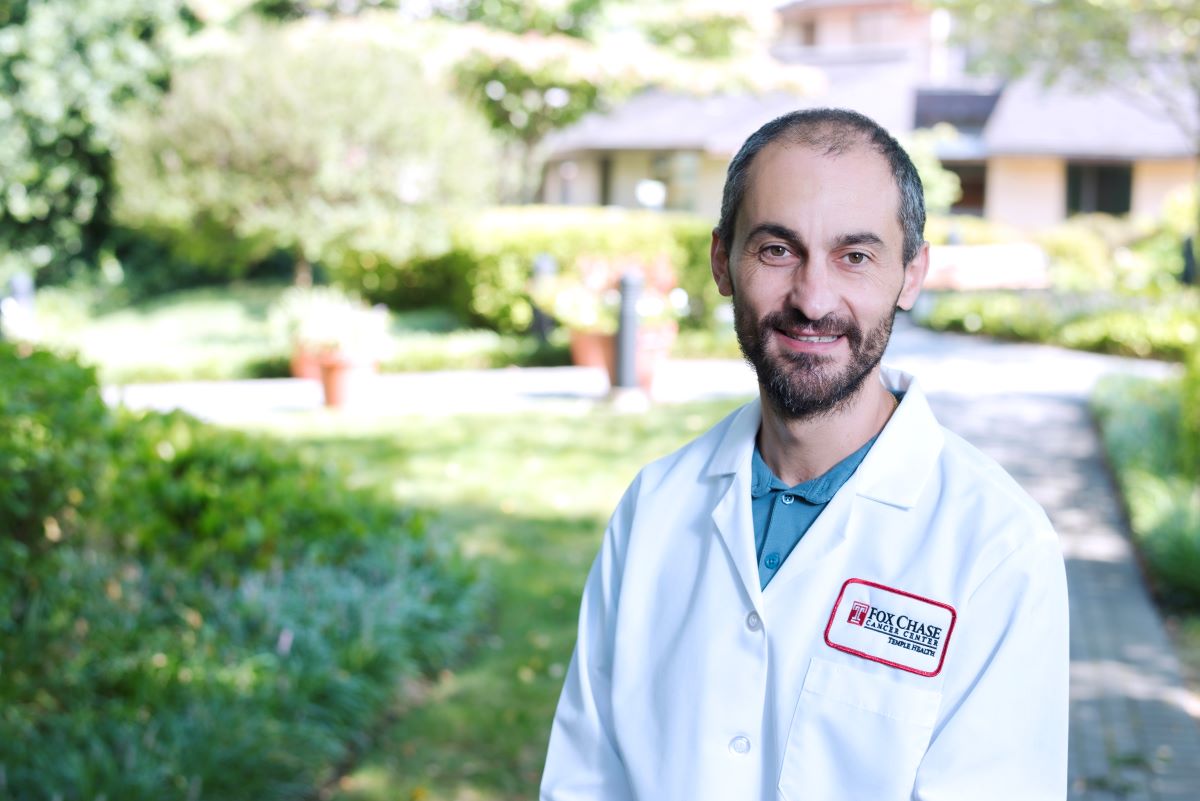
PHILADELPHIA (July 7, 2025) — Targeted cancer drugs known as CDK4/6 inhibitors have improved outcomes for patients with advanced or metastatic HR+/HER2- breast cancer, but many patients still eventually relapse and become resistant to therapy. New research co-headed by a Fox Chase Cancer Center scientist helps explain why — and offers three strategies for making treatment more effective.
In a new paper in Nature Cancer, a team of researchers shows, for the first time, how some tumors respond to CDK4/6 inhibitors by forming an immunosuppressive microenvironment that makes the cancer more resistant to treatment. The microenvironment consists of cells in the immediate vicinity of cancer cells that play a key role in the growth of tumors. The new research also shows how this immunosuppressive microenvironment can be mitigated with radiation therapy or drugs that modulate the immune system.
“The takeaway is, let’s give radiotherapy when we can,” said senior author Lorenzo Galluzzi, PhD, an Associate Professor in the Cancer Signaling and Microenvironment Research Program at Fox Chase. “But when we cannot, now we may have two different alternatives that we can use instead to make these inhibitors better.” Galluzzi conducted the research when he was affiliated with Weill Cornell Medicine in New York before joining Fox Chase last year. Other authors include researchers from Cedars-Sinai Medical Center in Los Angeles.
CDK4/6 inhibitors are targeted agents that improve on older chemotherapy drugs by directly attacking cancer cells while avoiding healthy cells as much as possible. They are typically given in combination with hormonal therapy to patients with advanced or metastatic HR+/HER2- breast cancer as standard care.
In this study, which involved multiple centers worldwide, researchers first showed in a mouse model that adding radiation therapy to CDK4/6 inhibitors and hormonal therapy was more effective than standard care alone.
Then they took a closer look at what was happening in the mouse tumors. They found that some of the tumors treated with CDK4/6 inhibitors had elevated levels of gamma delta T-cells and a specific population of macrophages that suppress immune responses. They also found that radiation therapy blocked signaling pathways involved in increasing these cells.
“The tumor reacts to CDK4/6 by generating this immunosuppressive microenvironment,” Galluzzi said. “Radiation therapy prevents that from happening.”
He also noted that gamma delta T cells and immunosuppressive macrophages can also be targeted with drugs that are already in use. This offers an alternative approach for patients who can’t receive radiation therapy, either because they have too many tumors or because their tumors are too close to sensitive organs.
Finally, researchers studied blood and tissue samples from human patients being treated for HR+/HER2- breast cancer with CDK4/6 inhibitors. They confirmed that patients with high levels of gamma delta T cells relapsed faster than patients with normal levels.
“It suggests that what we observe in the mouse also happens in patients,” Galluzzi said. It’s possible that gamma delta T cells could be used as an indicator to help predict which patients will respond better to treatment, he added.
In a follow-up study, researchers plan to treat HR+/HER2- breast cancer patients scheduled for surgery at Fox Chase with CDK4/6 inhibitors combined with drugs that target gamma delta T cells or immunosuppressive macrophages. They will check the tumors after surgery to look for beneficial changes in the tumor microenvironment. Eventually, they hope to conduct a clinical trial investigating whether combining therapies is more effective than standard care.
The study, “IL17A-Secreting γδ T Cells Promote Resistance to CDK4/6 Inhibitors in HR+HER2- Breast Cancer Via CX3CR1+ Macrophages,” was published in Nature Cancer.